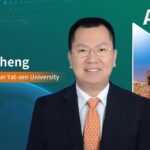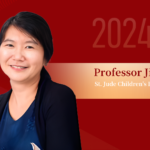The Fourth China Hematology Development Conference was held in Tianjin from January 5 to 7, 2024. Themed “Broad Hematology, Public Health, and Overall Well-being,” the conference centered around the core development directions of hematology, as well as major disciplinary issues faced in basic hematology research, translation, and clinical diagnosis and treatment in the new era. It featured discussions and in-depth explorations of hot topics and frontiers, aiming to promote the construction and vigorous development of the hematology field. On this occasion, Professor Ying Wang , Director of the Comprehensive Diagnosis and Treatment Center at the Institute of Hematology & Blood Diseases Hospital, Chinese Academy of Medical Sciences, was interviewed to share the progress and breakthroughs in immunotherapy within the field of Acute Lymphoblastic Leukemia (ALL).

Oncology Frontier – Hematology Frontier: In recent years, with the rise of small molecule targeted drugs and immunotherapy, ALL has entered the era of immunotherapy. This represents not only an improvement in treatment efficacy but also a revolutionary change in treatment philosophy. Could you discuss the changes immunotherapy has brought to the treatment of adult R/R ALL?
Professor Ying Wang : Immunotherapy has brought significant changes to the treatment of adult relapsed/refractory (R/R) ALL. Taking guidelines as an example, the treatment of R/R ALL was mainly intensive chemotherapy in the past. However, as immunotherapy options have become more abundant, for patients lacking suitable clinical trials, both NCCN guidelines and domestic guidelines now prioritize immunotherapy. In recent years, the rapid development of new treatment methods, including antibody-drug conjugates targeting CD22, bispecific antibodies targeting CD3/CD19, and CAR-T cell therapy targeting CD19, have made substantial progress in the treatment of adult R/R ALL. Compared to traditional chemotherapy, immunotherapy not only can improve remission rates but also significantly enhance the quality of remission, namely, the MRD (minimal residual disease) negativity rate. Proceeding with transplantation on this basis undoubtedly improves the efficacy for patients undergoing transplantation. For patients who are not suitable for transplantation, it is also possible to achieve long-term survival through immunotherapy, especially CAR-T cell therapy.
Oncology Frontier – Hematology Frontier: Despite the rapid development of immunotherapy in recent years, its efficacy still requires further improvement. The emergence of CAR-T cell therapy has broken this impasse. With the approval of Nakijo Ronces treatment for adult R/R B-ALL in China last November, CAR-T cell therapy has made a significant breakthrough in the leukemia field, bringing new hope to patients. Could you please introduce the progress made in CAR-T treatment for R/R ALL and the challenges that still need to be overcome?
Professor Ying Wang : In China, the clinical strategy for adult R/R ALL patients often involves salvage chemotherapy ± hematopoietic stem cell transplantation, but the median overall survival (OS) is only 2-6 months, and for targeted therapies, the median OS is 7.7 months. There is a dire need for effective treatment methods, and the emergence of CAR-T cell therapy has brought a glimmer of hope for patients with R/R ALL. Due to its higher remission rate and quality of remission, CAR-T cell therapy might be a better choice for R/R ALL patients if conditions permit, including those with extramedullary leukemia.
However, there are still several challenges with CAR-T therapy that need to be addressed. Firstly, the currently available CAR-T products are autologous, requiring one-to-one preparation, which is expensive and time-consuming. Therefore, patients with rapidly progressing disease or impaired T-cell function may not benefit from it. For such patients, antibody drugs are a good option, available for immediate use. Secondly, remission after CAR-T therapy does not mean never relapsing, so further exploration is needed on how to reduce relapse rates. Beyond bridging transplantation, whether there are other maintenance treatments that can improve efficacy is a question. Moreover, exploring a prognostic assessment system to identify patients more likely to relapse after CAR-T therapy and intervene early is a direction that urgently needs breakthroughs in the future.
Oncology Frontier – Hematology Frontier: Since the efficacy of immunotherapy in patients with R/R ALL has been confirmed, what are your views on moving immunotherapy earlier in the treatment of ALL? And how do you view the application of immunotherapy-based combination regimens in ALL?
Professor Ying Wang : In the future, moving the application of immunotherapy earlier will definitely be a trend. Since antibody drugs have been on the market for a while, there is already considerable international research data supporting the early use of immunotherapy. Currently, domestic research teams are also actively exploring moving immunotherapy earlier, expanding its application to patients with MRD positivity, and even to frontline and pediatric patients. However, moving immunotherapy earlier does not mean that traditional chemotherapy, stem cell transplantation, and small molecule targeted drugs can be replaced. Comprehensive treatment is very important in the treatment of R/R ALL. How to more reasonably combine immunotherapy with traditional chemotherapy, small molecule targeted drugs, or stem cell transplantation, explore better treatment timing, optimize treatment courses, and explore new combination regimens are goals that workers in the hematology field need to strive for together continuously.

Professor Ying Wang
Director of the Comprehensive Diagnosis and Treatment Center, Institute of Hematology & Blood Diseases Hospital, Chinese Academy of Medical Sciences
Chief Physician, Doctor of Medicine, PhD Supervisor, Tianjin Medical Talent
Standing Committee Member of the 6th Hematologic Oncology Committee of the Chinese Anti-Cancer Association
Vice Chair of the First Youth Working Group of the Hematologic Rehabilitation Professional Committee, Chinese Association of Rehabilitation Medicine
Committee Member of the Leukemia Branch, Chinese Medical Education Association
Member of the Hematopoietic Stem Cell Transplantation and Cell Therapy Professional Committee, Chinese Medical Education Association
Member of the Experimental Diagnosis Group, 11th Committee of the Hematology Branch, Chinese Medical Association
Corresponding Editor of the Chinese Journal of Hematology
Editorial Board Member of the Journal of Leukemia & Lymphoma
Postdoctoral Fellow at the Winship Cancer Institute, Emory University, USA
Primarily engaged in the clinical and basic research of leukemia


